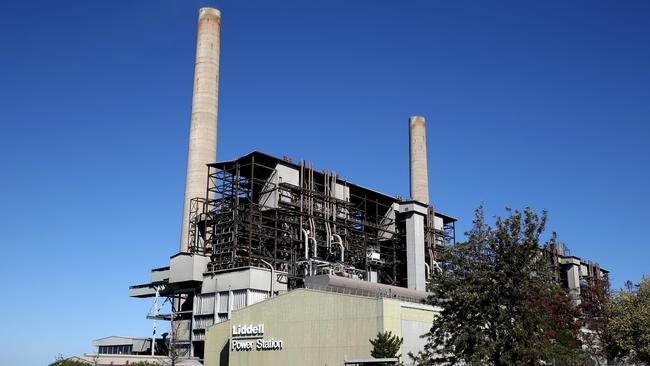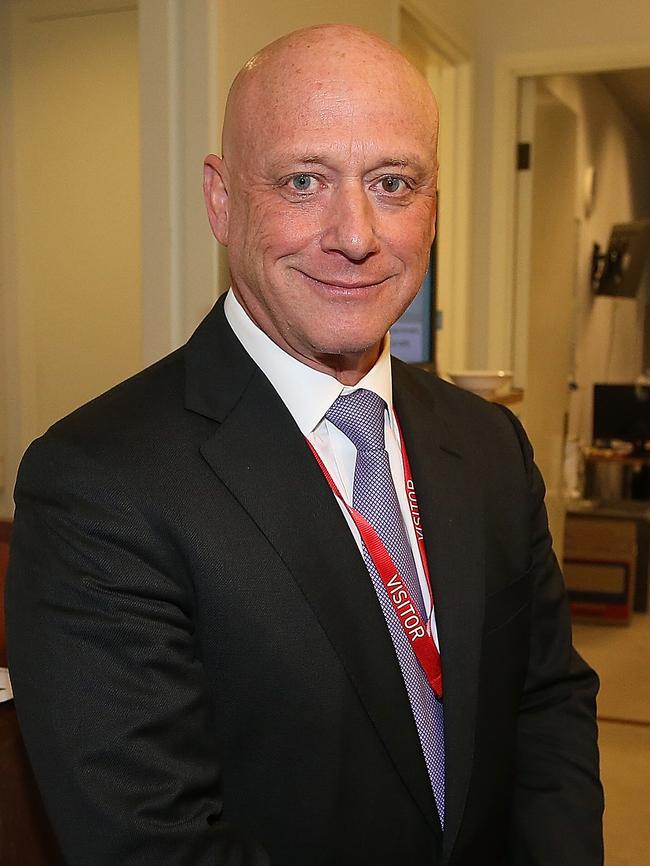AGL putting public last, says ACCC
AGL continues to defy pressure from the PM to sell its Liddell power plant as the competition watchdog blasts the energy giant.

AGL continues to defy pressure from the Turnbull government to sell its ageing Liddell power plant as the competition watchdog blasted the energy giant saying it ignored the public interest in past business decisions and that failing to sell Liddell to one of three interested buyers would disadvantage consumers.
The Australian can confirm Chinese conglomerate Shandong Ruyi remains interested in buying the 1800-megawatt Hunter Valley plant, and would seek to conduct due diligence with Alinta Energy and Delta Electricity, if allowed by AGL.
The Australian Competition & Consumer Commission said it could not force AGL to sell the plant, but there was no question that doing so would be in the interests of consumers.
“It is clearly pro-competitive and good for consumers if one of those companies gets hold of Liddell,” ACCC chairman Rod Sims told The Australian.
His comments come as AGL chief executive Andy Vesey warned that interference in the market by the government would raise issues of ‘‘sovereign risk’’ that could deter investment in new energy assets.
In an interview with Fairfax Media today, Mr Vesey said interest in Liddell from rival Alinta Energy had been limited to a phone call on Tuesday night from Alinta boss Jeff Dimery and a follow-up email on Wednesday. Mr Vesey said Alinta had indicated in the email a ‘‘desire to engage in a potential acquisition” of Liddell and asked about the purchase process. Mr Vesey said he had replied ‘‘we are not in the process of selling so there is no process’’.

But Mr Vesey added that any company was free to submit a proposal to buy Liddell and that AGL had an obligation to consider all serious offers. If Alinta could “meet our expectations about its value today and the value we have forward, then they need to put forward a bona fide bid but that hasn’t happened yet’’, he said.
Mr Sims said AGL “play it hard” and the company had a history of pursuing its business interests without considering what was best for the public. Mr Sims cited a “classic case” in 2015 when AGL bought 254 petajoules of gas from QGC, ostensibly for the domestic market, then onsold it to exporter GLNG at a profit.
“AGL play it hard. They are very much focused on maximising shareholder value. That’s what they are there to do. I understand that. It’s hard to criticise a commercial company trying to maximise profit,” Mr Sims said.
“But they really do come down on one side of the ledger. I know that’s a controversial thing to say.
“We do observe companies out there. And some of them will balance their commercial and public interests a bit more than others. And some of them will be companies that really just pursue their own best interests. And I’ve certainly seen cases of that with AGL, where they are quite happy to not give much thought to the public interest.”
AGL Energy said last year that the 2015 decision to contract domestic gas to the Santos-led Gladstone LNG project would not have been struck had it been known the Hazelwood power station in Victoria was going to close or that Exxon Mobil was planning to cut Bass Strait production.
The company said it would have made more money had it sold the gas domestically and would have been in a better position to service is customers.
Mr Sims said competition laws could not force a business to sell an asset, even if it would strengthen competition, because rival businesses could pursue other opportunities in the market.
Alinta Energy said it was seeking “exclusive due diligence” rights from AGL. Shandong Riyu, whose representative emailed the Prime Minister’s office last year indicating its potential interest in the station, would partner state-owned energy giant Huaneng Power if a bid eventuated.
The company, said to be “bruised” by the political fallout of its $240 million purchase of Cubbie Station, would consider buying Liddell only if it was supported by the government and its involvement didn’t attract controversy.
Shandong Riyu executives are understood to be frustrated that it has not been able to get a foothold in the Australian energy market after proposing a 20MW solar farm in Queensland’s southwest but failing to strike a deal with the Palaszczuk government’s Ergon Energy.
The company has been talking to Ergon Energy for the past 18 months about building a solar farm near Cubbie Station in Queensland’s Dirranbandi, but negotiations have stalled.
Over the same time, Shandong Ruyi completed a 1320MW low-emissions coal-fired plant in Pakistan, which it is operating with Huaneng Power. The Australian revealed last week an executive of Shandong Riyu met Treasurer Scott Morrison last year to detail its interest in entering the energy market.
Alinta’s chief Mr Dimery, who has flagged spending $1 billion to take over Liddell, acknowledged AGL would be reluctant to sell to a rival energy company, and the potential for a deal would come down to the quality of the offer.
He said Alinta would put an offer based on a set of transparent assumptions. It was hoped the AGL board would then agree to allow exclusive due diligence to Alinta, “and then we can go unconditional on our bid when we can firm up our assumptions”.
Mr Dimery said Alinta’s ability to secure long-term power supply deals with Manufacturing Australia members, and its established corporate structure in the energy market, would give it an edge.
Delta Electricity said it was also a serious buyer, if AGL was willing to sell. “I would have thought that opens up a competitive process,” Delta company secretary Steve Gurney said. Delta always looked for business opportunities and “running coal-fired power stations like Liddell is our core business”.
Manufacturers Australia chief executive James Fazzino, who is working with Alinta to secure buyers for Liddell’s power in the event that it buys the plant, confirmed he was not talking to any of the other interested parties.
AGL has so far resisted interest from potential buyers, saying it needs to retain Liddell to supply energy to customers until its closure in 2022. The energy giant says it also needs the Liddell site beyond 2022 as part of its planned replacement strategy involving renewables, gas and battery storage. Independent analysis prepared for AGL last year suggested it would cost $920m to extend the plant’s life by five years at a reduced 1000MW output.
Resources Minister Matt Canavan said he was “not going to take AGL’s figures at face value”, and urged the company to test the market. “This rubbish that they haven’t seen an offer — what does that mean? That you’re welcome to drive past the house, but you’re not allowed an inspection or building and pest report?
“I mean, if they are serious here, they’ll put it on the market, they’ll open up their books, they’ll let people do due diligence.”
Mr Vesey admitted that AGL’s shift away from fossil fuels had drawn political fire but he said the company’s strategy was the right thing to do for shareholders and the environment.
‘‘Somebody has to be on the bleeding edge,’’ he said. ‘‘We [AGL] are going to be the biggest emitter of [carbon dioxide] — that means we are going to need to be responsible, and take action.’’





To join the conversation, please log in. Don't have an account? Register
Join the conversation, you are commenting as Logout